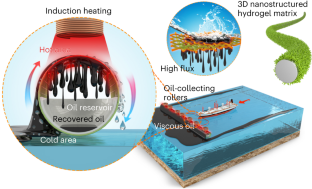2023-09-06 パシフィック・ノースウェスト国立研究所(PNNL)
◆この手法はスケーラビリティが高く、将来の研究に適しています。プロジェクト8により、ニュートリノが宇宙の初期進化にどのように影響を与えたかに関する重要な情報が得られ、宇宙の成り立ちの解明に貢献する可能性があります。
◆プロジェクト8は、新しい検出技術であるCyclotron Radiation Emission Spectroscopy(CRES)を使用し、電子のエネルギーを測定します。この技術は非常に精密で、今後の研究に役立つことが期待されています。プロジェクト8はさらなるスケールアップを計画し、より高い感度を目指しています。
<関連情報>
- https://www.pnnl.gov/news-media/closing-elusive-neutrino
- https://journals.aps.org/prl/abstract/10.1103/PhysRevLett.131.102502
サイクロトロン放射分光法によるトリチウムβスペクトル測定とニュートリノ質量限界 Tritium Beta Spectrum Measurement and Neutrino Mass Limit from Cyclotron Radiation Emission Spectroscopy
A. Ashtari Esfahani et al. (Project 8 Collaboration)
Physical Review Letters Published 6 September 2023
DOI:https://doi.org/10.1103/PhysRevLett.131.102502
ABSTRACT
The absolute scale of the neutrino mass plays a critical role in physics at every scale, from the subatomic to the cosmological. Measurements of the tritium end-point spectrum have provided the most precise direct limit on the neutrino mass scale. In this Letter, we present advances by Project 8 to the cyclotron radiation emission spectroscopy (CRES) technique culminating in the first frequency-based neutrino mass limit. With only a cm3-scale physical detection volume, a limit of mβ<155 eV/c2 (152 eV/c2) is extracted from the background-free measurement of the continuous tritium beta spectrum in a Bayesian (frequentist) analysis. Using 83mKr calibration data, a resolution of 1.66±0.19 eV (FWHM) is measured, the detector response model is validated, and the efficiency is characterized over the multi-keV tritium analysis window. These measurements establish the potential of CRES for a high-sensitivity next-generation direct neutrino mass experiment featuring low background and high resolution.



